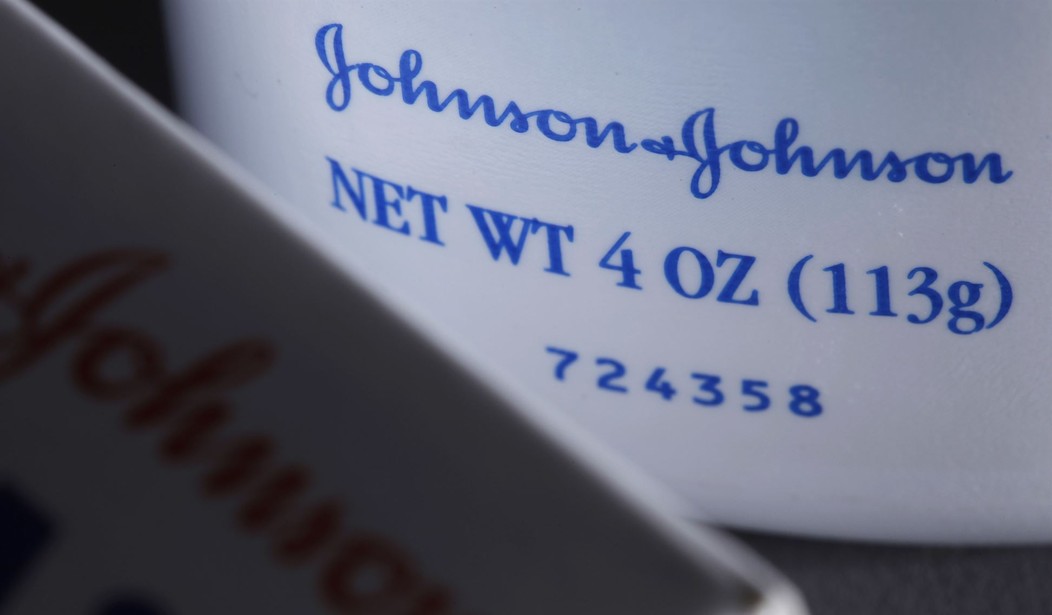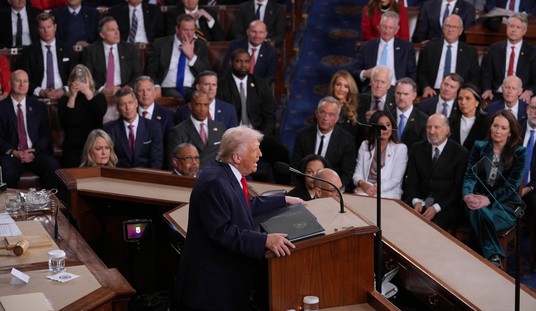A month ago, we decried Europe's vaccine panic, in which EU officials paused their already-languishing vaccine administration process to review the possibility that blood clotting was an extremely rare side effect of the AstraZeneca vaccine (which has never been approved in the US). A few dozen blood clot-related issues had arisen among the 17 million vaccinated people at the time. The data showed that while such effects did crop up in tiny numbers during the clinical trials, those instances were actually less frequent than they would have been under the normal natural occurrence rate among the general public. Beyond that, crucially, among the very small number of people within the trial who developed these issues, "occurrences were lower in the vaccinated group" than in the placebo group. It seemed as though European officials had needlessly stirred doubts about a safe and effective vaccine based on...basically nothing. The fear was that widespread vaccine skepticism would deepen because of the quickly-investigated-and-reversed 'pause.' And that's exactly what happened. It has almost certainly cost lives, perhaps quite a few of them.
And now it appears as though America might be having its own European AZ moment, this time featuring the Johnson & Johnson one-and-done vaccine. That vaccine passed through its vetting process with flying colors and has been injected into nearly seven million Americans. But because of six -- six, total -- potential blood clot 'side effects' (there's no evidence of causation at this time), the FDA has recommended a brief pause. On one hand, this may seem like the prudent, cautious course of action. A few points in favor of that argument: First, as others have asked, as negative an effect as the "pause" headlines will have, how much worse would it be if the headlines were 'FDA covered up blood clotting issue in vaccine'? Second, this move shouldn't disrupt America's roaring vaccine distribution efforts too significantly at all:
WH's Jeff Zients says in statement that pause in J&J vaccinations won't have a significant impact on the US vaccination plan. "We are working now with our state and federal partners to get anyone scheduled for a J&J vaccine quickly rescheduled for a Pfizer or Moderna vaccine."
— Meg Tirrell (@megtirrell) April 13, 2021
The flip side is explained by Philip Klein: "Halting the use of Johnson & Johnson will slow U.S. vaccination efforts. Not only was Johnson & Johnson one additional tool in the arsenal, but it also requires only one shot, meaning states can vaccinate twice as many people with the same number of appointments. It means that it’s less of a burden on those who are less eager to get vaccinated. And it means that those who receive the shot are fully vaccinated more quickly, because they don’t have to come back for another appointment three to four weeks later." Not necessarily catastrophic, but definitely not good. And third, here's the eminently reliable and calm Dr. Scott Gottlieb, who used to lead FDA, quasi-defending -- or at least explaining -- the agency's decision:
Recommended
"Let's start with what the FDA didn't do: they didn't revoke the EUA, they didn't order this off the market. This was a requested pause which is an awkward regulatory step but it reflects a level of caution not to appear too forcefully here," says @ScottGottliebMD on $JNJ vaccine pic.twitter.com/42Fg8OX8Ra
— Squawk Box (@SquawkCNBC) April 13, 2021
That's one angle on this. On the other hand, there's a strong case to be made that this is an EU/AZ-level overreaction that will cost lives on balance, and further warp the public's insanely warped sense of COVID risk assessment. Consider these numbers:
For perspective, here are some numbers:
— Dr. Angela Rasmussen (@angie_rasmussen) April 13, 2021
1 in 1,000,000: J&J vaccine
1 in 3,000: oral contraceptives
1 in 5: hospitalized COVID-19 patients
As someone who got the J&J vaccine 8 days ago, and who took oral contraceptives for 20 years, I’ll take these odds.
For what it's worth, Rasmussen sounds reluctantly supportive of the pause, but is trying to place the perceived risk in context. Women on the birth control pill (as an aside, the potential J&J has affected half-a-dozen women of contraceptive-using age) are far more likely to have clotting side effects, yet the pill is considered safe and remains in wide use. And we know that the dangers of severe COVID reactions are of course much more prevalent than these infinitesimally small possible side effects. The J&J vaccine is extremely effective at preventing infection, even more effective at preventing severe cases, and fully effective at preventing death, based on the exhaustive trials. That's the key (potential) trade-off here, as illustrated by another doctor:
7. What is also true is that it is difficult for most of us to accurately judge risk of Omission (risk of avoiding vaccines) versus risk of commission (risk of getting vaccines).
— Megan Ranney MD MPH ?? (@meganranney) April 13, 2021
We over estimate the latter, to our own - and our community’s - peril.
"Even if real, let’s put [the correlation] in context: if you catch #COVID19 you have an approximate 20% chance of getting a blood clot, according to a recent systematic review. (The real rate may be a little lower)," she writes. That represents a much, much higher chance of developing blood clots from getting COVID, which J&J's vaccine prevents. "Right now, the risk of catching #COVID19 and getting a bad complication is much higher than this very rare adverse effect." She does, however, note that the pause could be useful for helping experts determine if child bearing-aged women are at any elevated risk with the J&J shot, and suggests more scrutiny could also save some lives because it appears that certain treatments for clots could actually make this particular problem worse. Lots of complicated factors and nuances are at play.
But I keep coming back to the overriding concern laid out by Allahpundit: "The 'pause' could theoretically save, say, five lives by preventing vax-related blood clots and cost a thousand lives by inadvertently convincing people who would otherwise have gotten vaccinated eventually that the scientists really did 'cut corners' in this process and their products can’t be trusted. That’s some trade." Precisely. Unless the clotting is much more widespread than is currently known (Gottlieb mentions in the above clip that more J&J recipients may come forward with clots now that this story is getting wide play), and is proven to be caused or exacerbated by the J&J vaccine, the risk of poisoning the well with millions of vaccine-hesitant Americans seems far more dangerous than quietly studying the issue without a dramatic, publicly-announced freeze on distributing an overwhelmingly safe and effective vaccine in the middle of a pandemic. Many others seem to agree with my calculus:
A perfect (and disastrous) combination of
— Reuben Rodriguez (@ReubenR80027912) April 13, 2021
1. Not understanding risk stats
2. Media loving doom stories
3. A weird expectation of perfection
Folks, an adverse event that’s literally 1 in a million is *way* better odds than a fatal defects in any automobile sold in US
I disagree. Say there's a 1 in 100 chance someone acquires COVID because of a delayed vaccine (maybe conservative in the US where spread is still quite high) and a 1 in 150 chance they die from it. That's a 1 in 15,000 chance vs. 1 blood clot death in 7,000,000 doses so far. https://t.co/P9Wo00Rtow
— Nate Silver (@NateSilver538) April 13, 2021
I understand that the clotting concern is quite serious for the handful of women who've experienced the problem, but we don't know if there's any vaccine causality at all -- which was the fallacy that led to the AZ mess across the Atlantic, fueling major spikes in vaccine skepticism. Logically, a brief pause to be careful, followed by a prompt 'all clear' would be reassuring to people. Illogically, and in reality, distrust of the vaccine shot up dramatically in Europe because people felt as though the government was 'admitting' something, and wondered if the vaccine had really been vetted properly and thoroughly in the first place. We don't know if the J&J situation will end up mirroring the AZ fiasco. There are reasonable arguments on both sides of this one, and a number of unknowns remain. My fear is that the FDA's "abundance of caution" approach on this will prove to be a lethally wrong one. Finally, as an acknowledgements of the complexities involved here, I'll leave you with a suggestion to read this relevant thread, written by someone with whom I very rarely agree:
FDA is worried they missed something on J&J, and if it gets worse, and the public blames them for rushing the vaccine, that trust could collapse in *all* the vaccines, and in future vaccines.
— Ezra Klein (@ezraklein) April 13, 2021
The cost of that would be incalculable.
Is it possible that the FDA is going to increase vaccine hesitancy here, rather than lower it? Definitely.
— Ezra Klein (@ezraklein) April 13, 2021
Let's say, in three days, they clear J&J totally. Will that get the news coverage the pause did? Will it fully end the fears the public now has? I doubt it.

























Join the conversation as a VIP Member